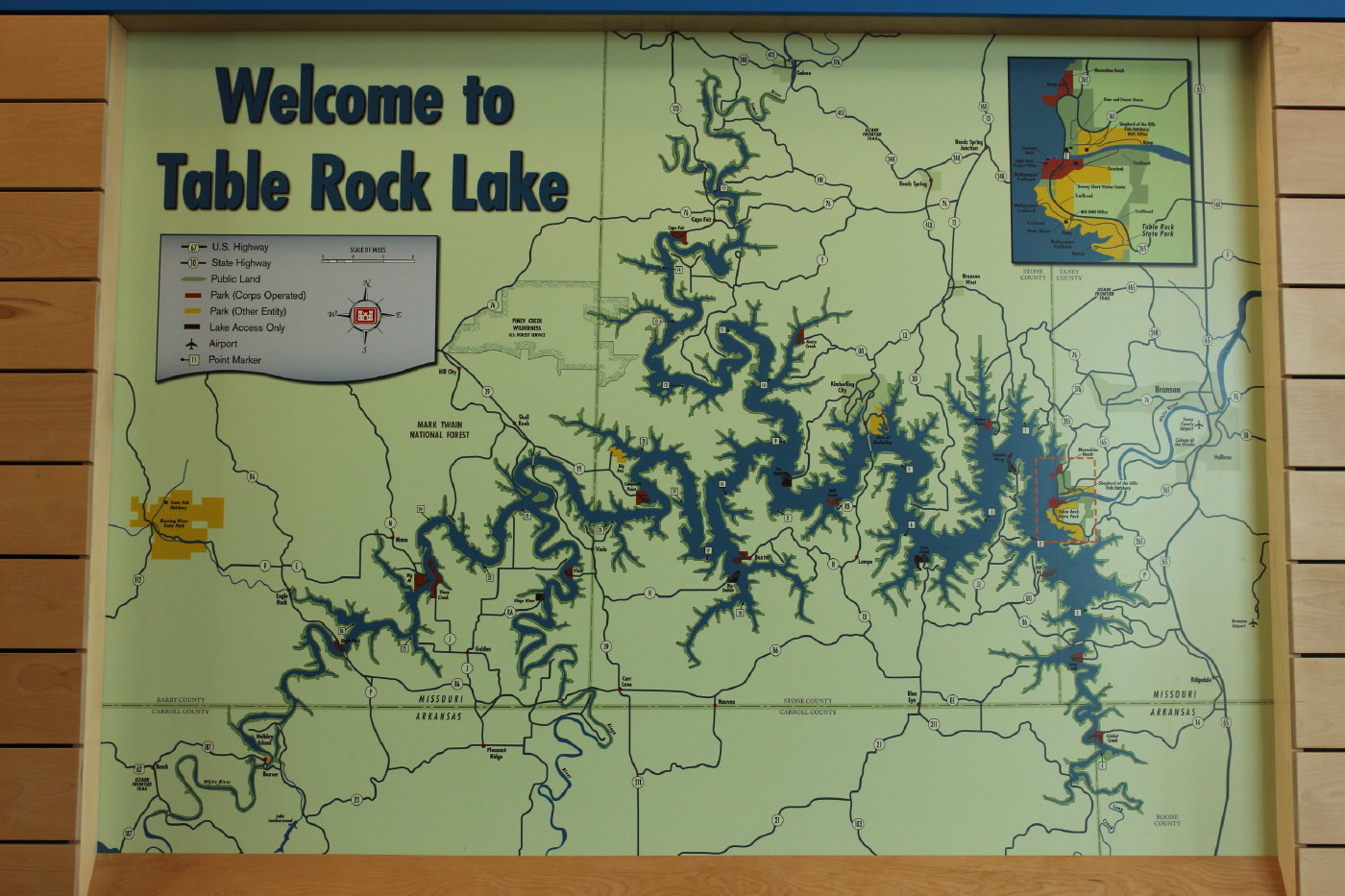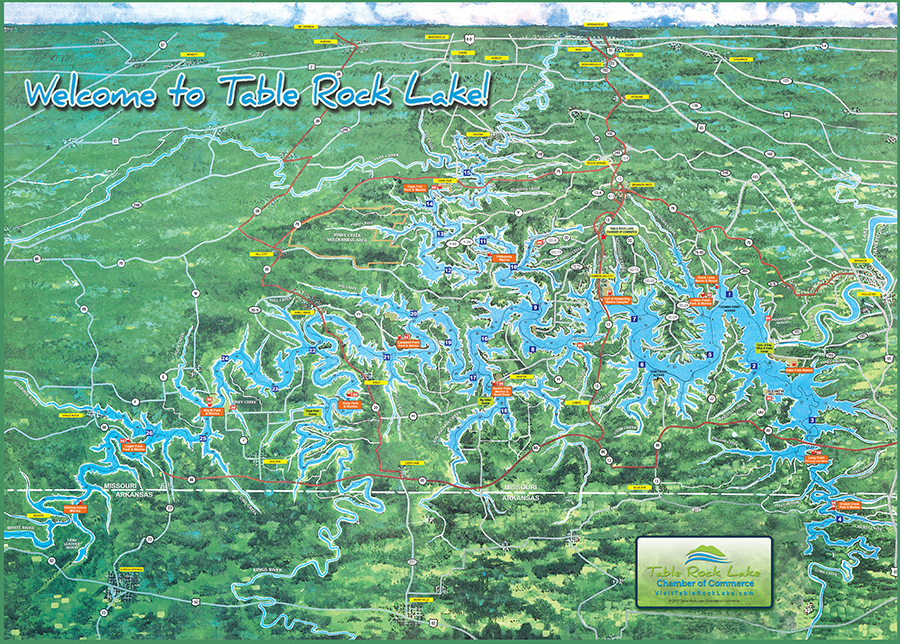Navigating Table Rock Lake: A Comprehensive Guide to Mile Markers
Related Articles: Navigating Table Rock Lake: A Comprehensive Guide to Mile Markers
Introduction
In this auspicious occasion, we are delighted to delve into the intriguing topic related to Navigating Table Rock Lake: A Comprehensive Guide to Mile Markers. Let’s weave interesting information and offer fresh perspectives to the readers.
Table of Content
- 1 Related Articles: Navigating Table Rock Lake: A Comprehensive Guide to Mile Markers
- 2 Introduction
- 3 Navigating Table Rock Lake: A Comprehensive Guide to Mile Markers
- 3.1 Understanding the Mile Marker System
- 3.2 Benefits of Using Mile Markers
- 3.3 Navigating with Mile Markers: Practical Tips
- 3.4 Frequently Asked Questions (FAQs)
- 3.5 Tips for Enhancing Your Table Rock Lake Experience
- 3.6 Conclusion
- 4 Closure
Navigating Table Rock Lake: A Comprehensive Guide to Mile Markers

Table Rock Lake, a sprawling reservoir nestled in the Ozark Mountains of Missouri, offers an idyllic escape for outdoor enthusiasts. Whether you’re boating, fishing, or simply enjoying the scenic beauty, understanding the lake’s mile markers is crucial for safe and efficient navigation. This guide provides a comprehensive overview of Table Rock Lake’s mile markers, explaining their significance and offering practical tips for utilizing them effectively.
Understanding the Mile Marker System
Table Rock Lake’s mile markers, denoted by numbered signs along the shoreline, provide a standardized system for navigating the vast expanse of the lake. Each mile marker represents a specific distance from the dam at the lake’s northern end.
Key Points to Remember:
- Mile Zero: Located at the base of the dam, marking the official starting point of the mile marker system.
- Ascending Numbers: Mile markers increase in number as you move southward down the lake.
- Consistent Placement: Markers are typically placed on the right bank as you travel downstream, providing consistent reference points.
- Distance Measurement: Each mile marker represents a one-mile interval along the shoreline.
Benefits of Using Mile Markers
Utilizing Table Rock Lake’s mile marker system offers numerous benefits for both recreational and professional boaters:
- Precise Location Identification: Mile markers provide a clear and unambiguous way to pinpoint your location on the lake.
- Efficient Navigation: They simplify navigation, allowing you to easily track your progress and plan your route.
- Safety Enhancement: Knowing your precise location on the lake is essential for calling for assistance in emergencies.
- Resource Management: Mile markers assist in identifying and accessing various amenities, including boat ramps, marinas, and campgrounds.
Navigating with Mile Markers: Practical Tips
- Consult a Detailed Map: Utilize a map of Table Rock Lake that clearly displays mile markers for optimal navigation.
- Mark Your Starting Point: Note the mile marker at your starting location to track your progress throughout your trip.
- Observe Buoys and Marker Placement: Pay attention to buoys and marker placement, as they can indicate navigational hazards or restricted areas.
- Use GPS Navigation: Consider using a GPS device or app to complement mile markers and enhance your navigation accuracy.
- Stay Aware of Changes: Be aware that water levels can fluctuate, potentially affecting the placement and accuracy of mile markers.
- Respect the Environment: Avoid disrupting or damaging mile markers, ensuring they remain available for future use.
Frequently Asked Questions (FAQs)
Q: Where can I find a detailed map of Table Rock Lake with mile markers?
A: You can find detailed maps of Table Rock Lake with mile markers online, at local marinas, or at the U.S. Army Corps of Engineers website.
Q: Are mile markers accurate throughout the year?
A: While mile markers are generally accurate, water level fluctuations can affect their placement. It’s essential to use caution and consult updated maps for the most accurate information.
Q: How often are mile markers updated or maintained?
A: The U.S. Army Corps of Engineers regularly monitors and maintains mile markers, ensuring their accuracy and visibility.
Q: What should I do if I encounter a damaged or missing mile marker?
A: Report any damaged or missing mile markers to the U.S. Army Corps of Engineers or the local park ranger.
Q: Are there any specific regulations regarding mile markers on Table Rock Lake?
A: While there are no specific regulations regarding mile markers, it’s important to treat them with respect and avoid any actions that could damage or disrupt their function.
Tips for Enhancing Your Table Rock Lake Experience
- Plan Ahead: Research your desired destinations, access points, and potential hazards before setting out on your trip.
- Check Weather Conditions: Stay informed about current and forecasted weather conditions to ensure safe boating.
- Practice Safe Boating: Follow all boating safety regulations and wear appropriate safety gear.
- Respect Wildlife: Observe wildlife from a safe distance and avoid disturbing their natural habitat.
- Leave No Trace: Pack out all trash and dispose of it properly to preserve the beauty of the lake.
Conclusion
Table Rock Lake’s mile marker system serves as a valuable navigational tool for both recreational and professional boaters. By understanding the system, utilizing its benefits, and following safety guidelines, you can enhance your boating experience, ensure safe navigation, and fully appreciate the splendor of this magnificent lake. Whether you’re exploring hidden coves, casting a line for the catch of the day, or simply enjoying the serene beauty of the Ozark Mountains, Table Rock Lake’s mile markers provide a reliable guide for navigating this cherished destination.







Closure
Thus, we hope this article has provided valuable insights into Navigating Table Rock Lake: A Comprehensive Guide to Mile Markers. We thank you for taking the time to read this article. See you in our next article!